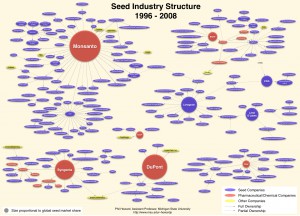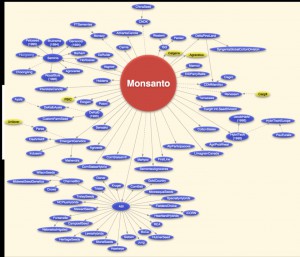
And another 1000:

Thank you Phil Howard, Michigan State University.
Agricultural Biodiversity Weblog
Agrobiodiversity is crops, livestock, foodways, microbes, pollinators, wild relatives …
Jeremy took IIED researchers to task a few days ago over their antipathy to GURTs, as articulated in a recent press release. One of the researchers quoted in that release, Krystyna Swiderska, is now the subject of an interview. GURTs don’t come up, but Dr Swiderska is clearly not completely against GMOs in principle:
If GM crops were produced with the people who need them and who will plant them, and they are specifically addressing their needs, then maybe they can be helpful.
Her main concern is to safeguard the rights of farmers.
We need to recognize farmers’ rights to maintain genetic diversity. We also need to protect land rights, cultural and spiritual values, and customary laws. Traditional knowledge is dependent on genetic diversity and vice versa and those two are dependent on farmers having rights to land and plant varieties.
Asked if traditional farmers could feed rising populations in a warming world, she points out that “there are technologies based on traditional seed varieties that can increase yields.” These technologies mainly turn out to be participatory plant breeding. I would have liked to see more discussion of this topic.
I’ll try to follow up on some work on genetic erosion I was not aware of:
Our research on rice in India’s eastern Himalayas, on potatoes in the Peruvian Andes, and on maize in southwest China, found significant reductions of traditional varieties in the last 10 to 20 years. There used to be 30 to 40 varieties of a crop being planted but now there are maybe 5 to 10 varieties.